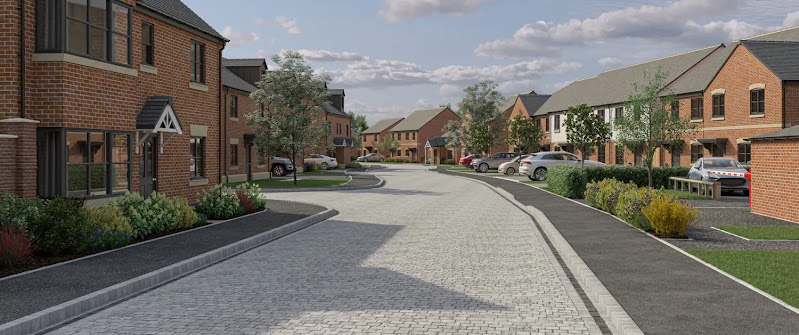As the housing market continues to evolve to meet growing demand, new build developments have emerged as a powerful solution to address modern housing needs. These projects offer more than just brand-new properties—they reflect a shift in how communities are designed, built, and lived in. From energy efficiency to smart layouts and affordability, new build developments are shaping the future of residential living.
Here are 9 compelling reasons why new build developments are the future of housing:
1. Modern Design and Architecture
New build homes reflect contemporary tastes and lifestyle needs. Open-plan layouts, ample natural lighting, energy-efficient materials, and cutting-edge designs are now standard features. Unlike older properties that may require significant renovation, new build developments offer a fresh canvas tailored to modern living.
2. Energy Efficiency and Sustainability
New build homes are built to current environmental standards, often incorporating solar panels, double or triple glazing, superior insulation, and energy-efficient appliances. This not only reduces carbon footprints but also lowers utility bills for homeowners, making them more economical and environmentally friendly in the long run.
3. Low Maintenance Costs
One of the major advantages of new build developments is the reduced maintenance requirement. Everything—from wiring and plumbing to roofing and appliances—is brand new and under warranty. This gives homeowners peace of mind and saves money on unexpected repair costs.
4. Smart Home Integration
Modern new builds often come with built-in smart technologies such as automated lighting, heating controls, security systems, and even voice-controlled devices. This integration supports a connected lifestyle and appeals to tech-savvy buyers and renters alike.
5. Government Incentives and Financial Benefits
In many regions, governments provide incentives for buying new build properties. These may include tax benefits, lower deposit requirements, or first-time homebuyer schemes. Such incentives make new build developments more accessible and attractive to young professionals and families entering the property market.
6. Better Urban Planning and Amenities
New build developments are not just standalone properties—they are often part of thoughtfully planned communities. These include shared amenities like parks, schools, retail outlets, and public transport links. This creates a self-sustaining ecosystem that supports a balanced and connected lifestyle.
7. Higher Safety and Building Standards
Regulations for new buildings are stricter than ever before. From fire safety to structural integrity and building materials, new build developments adhere to the latest codes and standards. This ensures greater safety and resilience, particularly in the face of extreme weather events or natural disasters.
8. Increased Customisation Options
Buying off-plan allows buyers to personalise features like flooring, kitchen finishes, and bathroom fittings. This level of customisation is rarely available in older homes, giving buyers a chance to create a space that truly suits their tastes and needs.
9. Long-Term Investment Value
As demand continues to outpace supply in many urban and suburban areas, new build developments tend to appreciate in value over time—especially when located in growth corridors. Additionally, modern amenities and energy-efficient features make them attractive rental properties, ensuring steady income and long-term returns for investors.
Conclusion
The housing landscape is undergoing a transformation, and new build developments are at the forefront. Combining efficiency, innovation, and thoughtful community planning, they offer sustainable, secure, and value-driven solutions for modern living. Whether you’re a first-time buyer, a growing family, or an investor, embracing the future of housing means considering the countless benefits that come with new build developments.

Comments
Post a Comment